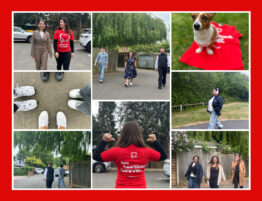
To succeed in construction today and over the coming decades, the workforce needs to think about a continuous skills upgrade.
We’re not only talking about the technical skills required by particular trades or the upgrades required to ensure those skills do not become obsolete as new technologies or processes emerge. For anyone working in construction to make a leap from ‘good’ to ‘great’ performance, there are a host of other skills and knowledge that should be also nurtured.
Imagine a skilled worker who has just been promoted to a Site Supervisor. Perhaps they were the best brickie on the job and so the time felt right for them to take on a more senior role. Now imagine that person also has poor communication skills or lacks the knowledge of how to use the IT systems that are an essential part of their new job. Without improvement, that person is one short step away from total failure.
So, how can we ensure that skills/ knowledge upgrades among construction workers are relevant and continuous?
Looking at several sources of advice, we think there are three key steps:
1. Understand the needs
In a recent study, Oxford Economics found that 66% of companies were falling short in putting together a workforce that would help them meet their business goals and that leaders were out of touch with what staff want in terms of incentives, benefits and training.
This problem begins with the fact that most companies fail to collect information about their workforce which would enable them to understand their strengths and weak points (just 38% in the study said they had this kind of useful data).
So, the first step has to be for companies to find a process that identifies what training is in short supply or needs updating. To do that, companies have to recognise that each person comes to the job from different backgrounds and with varying personal and technical skills. A ‘one-size fits all’ approach may work at the very basic levels of training (health and safety, toolbox talks etc) but to work out what else someone needs, construction training assessments must be carried out at an individual level. That might involve one-to-one meetings which focus on training needs or the use of observation methods to actually see how someone works and uses their skills in action.
2. Remember that ‘other skills’ count
We mentioned this earlier but it’s really important to keep in mind that not every skill/ knowledge upgrade will appear to have a direct link to the job at hand. Teamwork, communication skills, IT skills, mechanical aptitude – these are all examples of ‘other skills’ that can make a positive impact on the performance of individuals and, in turn, improve the performance of the company they work for. Imagine a site worker who is skilled at the processes they need to follow but has not yet acquired skills around maintaining their tools effectively. Tool failure and stoppage time seems an inevitable outcome.
3. Develop the lifelong learning habit
To help workers embrace life-long learning, construction companies need to use both informal and formal training methods.
On the job/ informal training can be used to help people share knowledge, fine tune their skills, or learn some aspects of those ‘other skills’ that will help them perform better and raise their potential. This ‘every day is a school’ day approach is important because it blurs the boundary between ‘work’ and ‘learning’ which helps people to become lifelong learners without even knowing it!
That said, there is a time for more formal construction training and this is especially true when it comes to training around safety, new materials and new operating procedures as well as areas which support people to advance into more senior positions like communication and management courses.
The good news is that, with modern technology and changes in our expectations, it is now far easier for people to become lifelong learners by accessing online courses, many of which are either free or relatively cheap. Through providers like Coursera, LinkedIn, the Open University, iTunes and many others, there are now seemingly endless opportunities. Here are just a few:
Coursera – Successful negotiation: essential strategies and skills
LinkedIn – Communications and business skills training
Coursera – Leadership and management courses
Open University – Work and business skills
Alison – Construction courses covering a wide range of techniques and industries
Study.com – More construction courses on building technology, civil engineering, equipment and more
AEC Daily – Large collection of courses covering materials and methods
Saylor Academy – Corporate communication
iTunes – What great bosses know
Construction Knowledge – People skills for supervisors
OSHA – Construction safety courses
In construction, masters of trade are no longer simply the workers who have been doing the job the longest. They are the ones who make continuous improvement a mission and see all learning activity as an opportunity to add something valuable to their personal knowledge/skills bank.
We’re working hard to make sure Sheriff Construction encourage this culture and try to provide all our team will lots of options that help them learn and grow. If you’re working with us and have ideas about training/ skills upgrades that you feel would be beneficial for you or others in your team, talk to your Manager or email the office directly on info@sheriffconstruction.co.uk.
16.03.2021
Feature image: Mathias Rosenthal/Shutterstock.com








